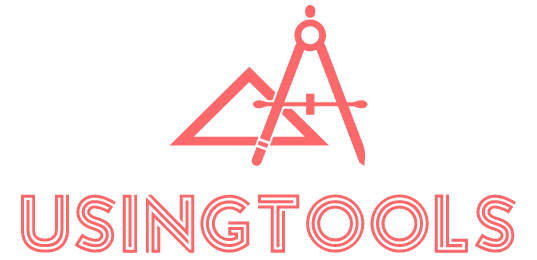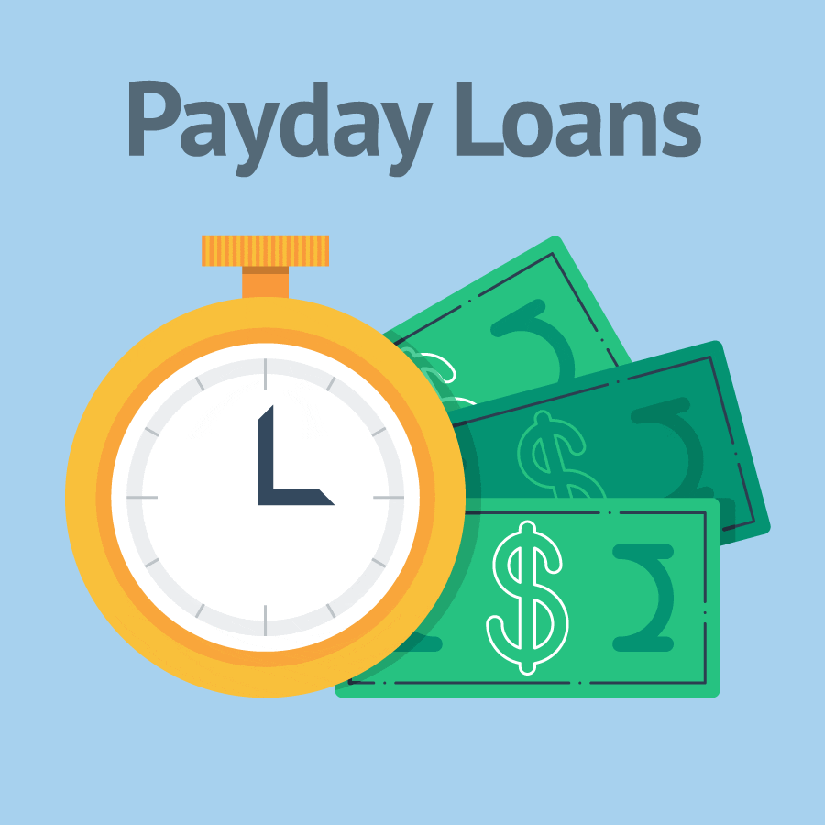What are Loans on Gumtree?
Loans on Gumtree refer to the peer-to-peer lending and borrowing activities facilitated through the popular online classifieds platform, Gumtree. It is a segment of the broader peer-to-peer (P2P) lending market, where individuals directly lend and borrow money from each other without the involvement of traditional financial institutions like banks.
On Gumtree, individuals can post loan requests or offers, specifying the desired loan amount, interest rate, repayment terms, and other conditions. Borrowers can seek loans for various purposes, such as personal expenses, debt consolidation, or small business financing, while lenders can earn interest on the funds they provide.
The types of loans offered on Gumtree can vary widely, ranging from unsecured personal loans to secured loans backed by collateral like vehicles or property. Some lenders may offer specialized loan products, such as payday loans, student loans, or business loans, catering to different borrower needs.
Unlike traditional lending platforms, Loans on Gumtree operate in a decentralized manner, without the oversight and regulations typical of banks and other financial institutions. This peer-to-peer model eliminates intermediaries, potentially offering more favorable terms and lower costs for both borrowers and lenders.
Table of Contents
How Loans on Gumtree Work
Loans on Gumtree are a form of peer-to-peer lending, where individuals can directly lend or borrow money from one another without going through traditional financial institutions. The process typically involves the following steps:
- Listing a Loan Request: Borrowers create a listing on Gumtree, specifying the amount they need to borrow, the purpose of the loan, and the proposed repayment terms, such as the interest rate, loan duration, and repayment schedule.
- Lender Applications: Interested lenders review the loan listings and apply to fund all or part of the requested loan amount. They may negotiate terms with the borrower or accept the proposed conditions.
- Verification and Background Checks: Gumtree may conduct basic verification checks on both lenders and borrowers to assess their identities and creditworthiness. However, the extent of these checks can vary, and users should exercise caution.
- Loan Agreement: If a lender’s application is accepted, a loan agreement is drafted, outlining the terms and conditions, including the repayment schedule, interest rate, late payment penalties, and any collateral or security involved.
- Funds Transfer: Once the agreement is finalized, the lender transfers the loan amount to the borrower, often through a secure online payment platform or direct bank transfer.
- Repayment: The borrower is responsible for making timely repayments according to the agreed schedule. Late or missed payments may result in penalties or legal actions, as stipulated in the loan agreement.
It’s important to note that while Gumtree facilitates the connection between lenders and borrowers, the platform itself does not provide the loans or act as a financial intermediary. The terms and conditions of each loan are negotiated directly between the parties involved, and Gumtree does not guarantee the legitimacy or success of these transactions.
Advantages of Loans on Gumtree
Convenience and Accessibility: One of the primary advantages of loans on Gumtree is the convenience and accessibility they offer. With a few clicks, borrowers can access a wide range of lenders and loan options from the comfort of their homes. This eliminates the need for physical visits to banks or financial institutions, saving time and effort.
Peer-to-Peer Lending: Gumtree facilitates peer-to-peer lending, where individuals can directly lend to or borrow from other individuals. This decentralized approach eliminates the need for traditional financial intermediaries, potentially reducing costs and increasing transparency.
Potential for Better Interest Rates: By connecting borrowers and lenders directly, loans on Gumtree can potentially offer better interest rates compared to traditional lending institutions. Lenders can set their own rates based on their risk assessment, and borrowers can shop around for the most favorable terms.
Accessibility for Underserved Populations: Loans on Gumtree can provide access to credit for individuals who may not qualify for traditional loans due to poor credit history or lack of collateral. This can be particularly beneficial for small businesses, entrepreneurs, or those with unconventional financial situations.
Disadvantages and Risks of Loans on Gumtree
While loans on Gumtree offer convenience and accessibility, they come with significant risks and drawbacks that borrowers and lenders should be aware of:
Lack of Regulation: One of the biggest concerns with Gumtree loans is the lack of regulatory oversight. Unlike traditional financial institutions, peer-to-peer lending platforms like Gumtree are not subject to the same stringent regulations and consumer protection laws. This absence of regulation can leave both parties vulnerable to potential fraud, misrepresentation, or unfair practices.
Potential for Scams: The anonymity and lack of verification on Gumtree can make it easier for scammers to operate. Borrowers may fall victim to fraudulent lenders who have no intention of providing the promised funds, while lenders risk being deceived by borrowers who have no intention of repaying the loan.
No Credit Checks: Gumtree loans typically do not involve credit checks or income verification, which can be a double-edged sword. While this accessibility can be beneficial for those with poor credit or limited financial history, it also increases the risk of default and financial loss for lenders.
Higher Interest Rates: Due to the higher risk involved and the lack of regulation, interest rates on Gumtree loans can be significantly higher than those offered by traditional lenders. Borrowers may find themselves trapped in a cycle of high-interest debt, making it difficult to repay the loan.
It is crucial for both borrowers and lenders to exercise extreme caution when engaging in Gumtree loans. Thoroughly researching the other party, understanding the risks, and seeking legal advice when necessary can help mitigate potential issues and ensure a safer lending or borrowing experience.
Popular Loan Types on Gumtree
On Gumtree, you can find various types of loan offerings, each suited for different purposes and borrower profiles. Here are some of the most common loan types advertised on the platform:
Personal Loans: These are unsecured loans that individuals can take out for various purposes, such as debt consolidation, home improvements, or unexpected expenses. Personal loans on Gumtree typically range from a few hundred to several thousand dollars, with varying repayment terms and interest rates.
Business Loans: Entrepreneurs and small business owners can find loan opportunities on Gumtree to finance their ventures. Business loans can be used for startup costs, equipment purchases, inventory, or working capital. These loans may be secured or unsecured, depending on the lender’s requirements.
Payday Loans: Payday loans are short-term, high-interest loans designed to provide quick cash until the borrower’s next paycheck. While convenient, payday loans on Gumtree should be approached with caution due to their high costs and potential for debt cycles.
Secured Loans: Secured loans require the borrower to put up an asset, such as a car or property, as collateral. This collateral acts as security for the lender in case the borrower defaults on the loan. Secured loans on Gumtree may offer lower interest rates but carry the risk of losing the collateral asset.
Unsecured Loans: Unlike secured loans, unsecured loans do not require any collateral. Instead, lenders on Gumtree evaluate the borrower’s creditworthiness based on factors like income, employment, and credit history. Unsecured loans tend to have higher interest rates to compensate for the increased risk for the lender.
It’s important to carefully evaluate the terms, conditions, and reputation of lenders on Gumtree before proceeding with any loan agreement. Additionally, borrowers should assess their ability to repay the loan and understand the potential consequences of defaulting.
Lender Vetting and Verification
Thorough vetting and verification of lenders on Gumtree is crucial to ensure a safe and successful lending experience. Peer-to-peer lending platforms like Gumtree can be breeding grounds for scammers and fraudsters, making it essential to exercise caution and due diligence.
One of the most important steps in the vetting process is checking reviews and feedback from previous borrowers. Positive reviews from multiple sources can provide valuable insights into a lender’s reliability, professionalism, and track record. Conversely, negative reviews or a lack of feedback should raise red flags and prompt further investigation.
Common red flags to watch out for include lenders who pressure for immediate payment, request upfront fees, or offer unrealistically low interest rates. Legitimate lenders will typically have a transparent and straightforward application process, clear terms and conditions, and reasonable interest rates based on market conditions and the borrower’s creditworthiness.
It’s also advisable to verify the lender’s identity and credentials. Reputable lenders should be willing to provide official documentation, such as business registration or licensing information, to establish their legitimacy. Additionally, conducting online searches and cross-referencing information from multiple sources can help uncover any suspicious activities or complaints associated with the lender.
Ultimately, the responsibility lies with the borrower to exercise due diligence and thoroughly vet potential lenders on Gumtree. By taking the time to verify credentials, check reviews, and be wary of common red flags, borrowers can significantly reduce the risk of falling victim to fraudulent or predatory lending practices.
Borrower Responsibilities and Considerations
As a borrower on Gumtree, it’s crucial to approach the process with diligence and responsibility. Before accepting a loan offer, thoroughly understand the terms and conditions, including the interest rate, repayment schedule, and any fees or penalties. Carefully review the contract and seek clarification if anything is unclear.
One of the most important considerations is your ability to repay the loan. Realistically assess your current financial situation, income, and existing debts. Overextending yourself can lead to missed payments, late fees, and potential legal consequences. It’s advisable to create a detailed budget and ensure that the loan repayments fit comfortably within your means.
Borrowing money, even through peer-to-peer platforms like Gumtree, can impact your credit score. Late or missed payments will likely result in negative marks on your credit report, making it more difficult to secure future loans or credit. Maintain a consistent repayment history to protect your credit rating.
Additionally, consider the purpose of the loan and whether it aligns with your financial goals. Borrowing for essential expenses or investments that can generate returns may be justifiable, but taking on debt for unnecessary purchases should be avoided.
Remember, as a borrower, you hold the responsibility for repaying the loan according to the agreed-upon terms. Failure to do so can damage your relationship with the lender and potentially lead to legal consequences. Approach the process with transparency, honesty, and a commitment to fulfilling your obligations.
Legal and Regulatory Aspects
Peer-to-peer lending platforms like Gumtree have gained popularity in recent years, but they operate in a legal and regulatory gray area. While they facilitate direct lending between individuals, these platforms are not subject to the same stringent regulations as traditional financial institutions. However, there are still laws and regulations that govern peer-to-peer lending activities.
One of the primary legal considerations is consumer protection. Borrowers and lenders on these platforms may be vulnerable to fraud, misrepresentation, or unfair practices. To address these concerns, some countries have introduced specific regulations or brought peer-to-peer lending under existing consumer protection laws.
For instance, in the United Kingdom, peer-to-peer lending platforms are regulated by the Financial Conduct Authority (FCA). Platforms must obtain proper authorization, comply with rules on advertising, and implement measures to protect consumer interests. Similarly, in the United States, peer-to-peer lending platforms are subject to various state and federal regulations, including the Truth in Lending Act and the Equal Credit Opportunity Act.
Another legal aspect to consider is taxation. Lenders on peer-to-peer platforms may be required to report and pay taxes on the interest earned from their loans. The tax treatment of these earnings can vary depending on the jurisdiction and the lender’s individual circumstances.
Additionally, there are concerns about money laundering and the potential use of peer-to-peer lending platforms for illicit activities. Platforms may be required to implement anti-money laundering (AML) and know-your-customer (KYC) procedures to mitigate these risks.
As peer-to-peer lending continues to grow, regulators are closely monitoring the industry and may introduce new laws or guidelines to address emerging issues. For example, there have been discussions about implementing stricter capital requirements for platforms, enhancing data protection measures, or introducing lending caps to prevent over-indebtedness.
It’s important for both borrowers and lenders to stay informed about the legal and regulatory landscape surrounding peer-to-peer lending. Consulting with legal professionals or financial advisors can help ensure compliance and protect their interests when engaging in these types of transactions.
Alternatives to Loans on Gumtree
While Gumtree offers a convenient platform for peer-to-peer lending, there are several alternative options worth considering, each with its own advantages and disadvantages.
Traditional Bank Loans: Banks are a well-established source for borrowing money. They offer a range of loan products, including personal loans, auto loans, and mortgages. The application process is typically more rigorous, requiring good credit scores, income verification, and collateral in some cases. However, bank loans often come with lower interest rates and more favorable terms, especially for borrowers with strong credit profiles.
Credit Unions: Credit unions are member-owned, not-for-profit organizations that provide financial services, including loans. They may offer more competitive rates and personalized service compared to traditional banks. Credit unions typically have more flexible lending criteria, making them a viable option for borrowers with less-than-perfect credit.
Online Lending Platforms: In recent years, online lending platforms have gained popularity as an alternative to traditional lenders. These platforms connect borrowers with individual or institutional investors willing to fund their loans. The application process is often streamlined and can be completed entirely online. However, interest rates and fees can vary widely, and borrowers should carefully review the terms and conditions.
Personal Loans from Family/Friends: Borrowing from family or friends can be a viable option, especially for smaller loan amounts or short-term financial needs. This approach can offer more flexibility and potentially lower or no interest rates. However, it’s crucial to establish clear terms and expectations to avoid straining personal relationships. Additionally, there may be tax implications for larger loan amounts.
Each alternative has its own set of pros and cons, and the best option will depend on individual circumstances, such as credit history, loan amount, intended use, and personal preferences. It’s essential to carefully research and compare the available options to make an informed decision that aligns with your financial goals and risk tolerance.
Tips for Safe and Successful Lending/Borrowing
Engaging in peer-to-peer lending or borrowing on platforms like Gumtree requires caution and due diligence from both parties. Here are some tips to ensure a safe and successful experience:
Best Practices
- Thoroughly review the platform’s policies, terms, and conditions before engaging in any transactions.
- Verify the identities and credentials of the other party through official documentation or third-party verification services.
- Conduct background checks and credit checks (if applicable) to assess the risk involved.
- Clearly define and document the loan terms, including the amount, interest rate, repayment schedule, and any collateral or security involved.
Due Diligence
- Research the other party’s reputation, reviews, and track record on the platform or other online communities.
- Be wary of unrealistic or too-good-to-be-true offers, as they may be indicative of fraud or scams.
- Understand the risks associated with peer-to-peer lending, such as default, late payments, or legal disputes.
- Diversify your lending portfolio by spreading your investments across multiple borrowers to mitigate risk.
Communication and Documentation
- Maintain open and transparent communication throughout the lending/borrowing process.
- Document all interactions, agreements, and transactions for future reference and dispute resolution.
- Establish clear channels for communication and ensure both parties have a mutual understanding of the terms and expectations.
Dispute Resolution
- Familiarize yourself with the platform’s dispute resolution mechanisms and procedures.
- Seek professional legal advice if disputes arise and cannot be resolved amicably.
- Consider using escrow services or third-party mediators to facilitate transactions and mitigate potential conflicts.
Remember, while peer-to-peer lending platforms like Gumtree can provide alternative financing options, they also carry inherent risks. Exercise caution, conduct thorough research, and prioritize transparency and communication to increase the chances of a successful and mutually beneficial experience.
Future of Peer-to-Peer Lending Platforms
The peer-to-peer lending landscape is rapidly evolving, driven by technological advancements, changing consumer preferences, and regulatory shifts. Several emerging trends are shaping the future of these platforms:
Emerging Trends:
- Increased adoption of artificial intelligence and machine learning algorithms for credit risk assessment, fraud detection, and personalized loan matching.
- Integration of alternative data sources, such as social media activity, online footprints, and unconventional credit scoring models, to improve lending decisions.
- Emphasis on mobile-first platforms and seamless digital experiences to cater to the growing demand for on-the-go financial services.
- Exploration of blockchain technology and decentralized finance (DeFi) solutions for enhanced transparency, security, and disintermediation.
Potential Growth:
The peer-to-peer lending market is projected to experience substantial growth in the coming years, driven by factors such as:
- Increasing awareness and acceptance of alternative financing options among consumers and small businesses.
- Rising demand for accessible and affordable credit, particularly in underserved markets and regions with limited access to traditional banking services.
- The emergence of niche platforms catering to specific industries, demographics, or loan types, further expanding the market reach.
Regulatory Changes:
As the peer-to-peer lending industry matures, regulatory bodies are likely to introduce more comprehensive frameworks to ensure consumer protection, fair lending practices, and financial stability. Potential regulatory changes may include:
- Stricter capital requirements and risk management protocols for lending platforms.
- Enhanced disclosure and transparency requirements to protect borrowers and lenders.
- Standardization of lending practices and loan origination processes across platforms.
- Increased oversight and monitoring to prevent fraud, money laundering, and other illicit activities.
Impact of Technology:
Technological advancements will play a pivotal role in shaping the future of peer-to-peer lending platforms. Key areas of impact include:
- Automation of loan origination, underwriting, and servicing processes, leading to increased efficiency and cost savings.
- Leveraging big data analytics and predictive modeling to improve credit risk assessment and loan performance.
- Adoption of open banking APIs and data sharing frameworks to streamline loan application processes and enhance user experiences.
- Exploration of emerging technologies like biometrics, digital identities, and smart contracts to enhance security and trust in peer-to-peer lending ecosystems.
As the peer-to-peer lending industry continues to evolve, platforms that embrace innovation, prioritize transparency, and adapt to changing market dynamics and regulatory landscapes will be well-positioned to thrive in the future.



